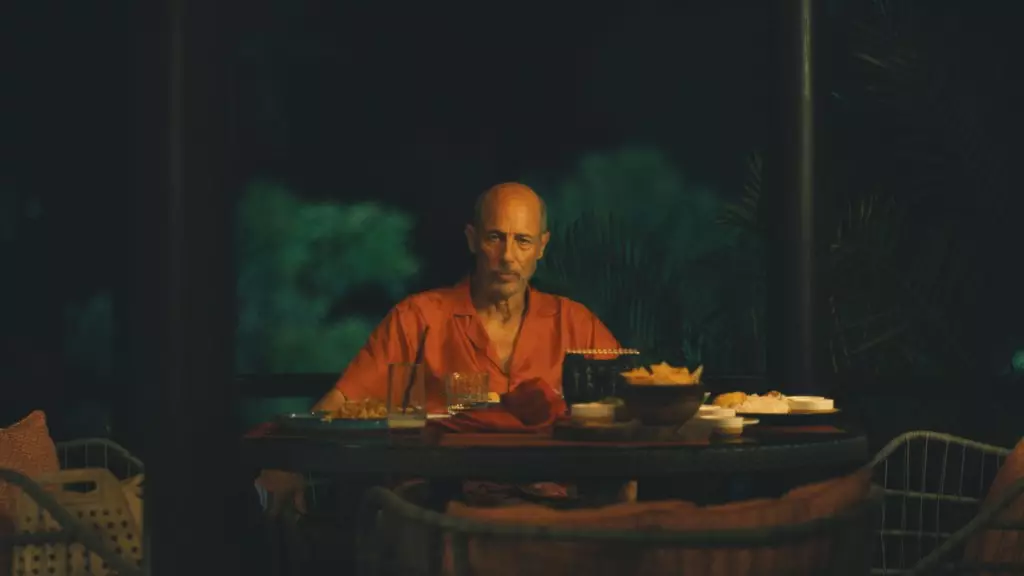With its rich tapestry of characters and multilayered storytelling, *The White Lotus* continues to captivate audiences as it ventures into its third season. In a show that has redefined the boundaries between black comedy and social commentary, the latest installment returns viewers to the familiar setting of high-end resorts, where opulence collides with moral decay. While many fans have speculated about the narrative arcs connecting seasons, the real charm of Season 3 lies in the unexpected re-emergence of characters whose pasts create ripples in the current storyline.
The Ghosts of Past Relationships
One of the standout elements of this new season is the return of Greg, portrayed masterfully by Jon Gries. His character reintroduces a spectral complexity to the narrative, especially following the tumultuous events that transpired at the close of Season 2. The shadow of Tanya McQuoid, Greg’s late wife, looms large during their interactions, which evokes a haunting sense of unfinished business. The series has a knack for weaving threads from former plotlines into the new ones, creating a sense of continuity while also allowing for fresh tensions to arise. Greg’s initial deception of Tanya sets the stage for possible revelations about his true intentions in Season 3 as well.
The dynamic between Greg and Belinda, currently portrayed by Natasha Rothwell, explores the themes of ambition and betrayal. Belinda’s character, now trying to elevate herself in the hospitality scene while navigating the complexities of being both a guest and employee, exposes the fragility of friendships in the seedy underbelly of luxury travel. The crisscrossing motivations between characters hint at the broader societal commentary on power structures and exploitation that has become synonymous with the series.
A Shady Cast of Characters
The narrative cleverly introduces a modern context to timeless issues: classism, ambition, and the peculiarities of human relationships. For instance, the new cast members, including Chloe (Charlotte Le Bon) and Chelsea (Aimee Lou Wood), provide fresh perspectives on the existing dynamics. Chloe’s portrayal of a naive young woman bewildered by the emptiness of wealthy lifestyles creates a stark contrast to the seasoned, cynical individuals around her. This contrast fuels the show’s critique of societal norms, as Chloe’s experiences highlight the superficiality of affluent existence.
Additionally, the interactive subplot involving Greg, who now goes by Gary, adds a layer of intrigue. His reticence around disclosing his past raises questions about identity and the masks people wear in social settings. This metamorphosis is emblematic of the series’ exploration of self-preservation in an environment filled with scrutiny, deception, and loss. The change in his name, as well as Belinda’s mixed feelings towards him, serves as a clever narrative device that underscores the complexities we navigate when we encounter people from our past.
The Psychological Implications
The psychological dynamics at play in *The White Lotus* Season 3 cannot be overlooked. The haunting memories of Tanya’s demise resonate throughout the season, affecting both Greg and Belinda. Their shared history acts almost as a psychological anchor, intertwining their fates in a setting characterized by secrets and hidden agendas. As Belinda confronts the memories of Tanya and the impact of Greg’s actions, the viewers are left pondering the implications of unresolved grief and the repercussions it can have on new relationships.
Furthermore, the inclusion of darker undertones in the storyline, such as Chloe’s ominous remarks about Greg’s ex-wife and the mysterious circumstances surrounding her death, skillfully amplify the suspense. This narrative layering adds depth, making it clear that *The White Lotus* is not just exploring the absurdity of wealth but also the moral decay masked by affluence.
Navigating New Friendships
As Belinda and Greg’s paths intersect in unexpected ways, viewers are compelled to reflect on the nature of friendships forged in adversity and the burdens of past associations. The pall of Tanya’s untimely end casts a shadow, creating a perplexing atmosphere where trust is tenuous. Belinda’s approach towards Greg reflects her struggle between personal ambition and the remnants of friendship, prompting a profound examination of how past betrayals can complicate present relationships.
The complexity of characters’ interactions in *The White Lotus* serves as a microcosm for broader societal themes, namely the impact of grief, the search for power in relationships, and the role of deception. As the series delves deeper into the characters’ motivations and aspirations, it becomes a case study in the frailty of human connections against a backdrop of privilege and excess.
In this season, the show not only captivates viewers with its sordid tales of luxury but also compels them to grapple with the darker aspects of human nature. The intricacies of their relationships unfold with an intentional rhythm, one that encourages reflection on the masks we wear and the ghosts we harbor.

